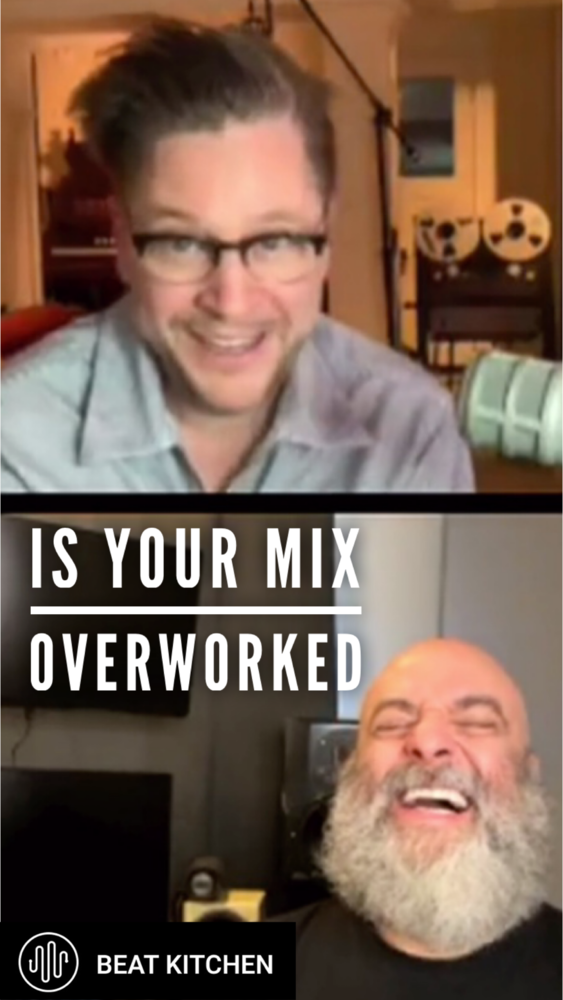Transcription of the video above
I want you to meet Rich Crocenti. He teaches our upcoming mixing masterclass. If you missed our last live event, here’s an excerpt from that conversation.
I’m sorry about the video quality. It’s inversely proportional to the quality of the content. Check it out.
And so now the elephant in the room, if you have ever overworked a mix. Can I raise both hands? It’s better to have an unfinished song than an overworked one.
Sometimes I’ll find myself being like, I got to back off or I got to start over. That happens to every mix engineer out there will sometimes just wipe it and start over. Easiest way to tell if a mix is overworked.
I would say when everything is as loud as you want it to be and the mix is just not exciting, that’s really what it comes down to is you’ve taken the excitement out of the mix. You’ve taken the movement out of the mix. You’ve gotten to the point where when you’re listening, comparing it to other mixes and your mix is loud and it’s big, but it is not exciting.
That’s the sign right there to me. I like that a lot. It can happen when writing.
It can happen when cooking. The difference is in cooking, it’s really hard to get the jalapeno out of the soup. Right?
You can’t, and I’m making Rich hungry or hungry. (laughing) But I think sometimes there is an advantage to just nuking it and starting over. But one thing is the importance of creating a good system for versioning, for creating a trail of breadcrumbs.
Because sometimes what you’ll find is you got something pretty close and then you reached for something and you missed. You learn something in the process of reaching for that thing and you need to be able to get back to the point before you reach for it.

